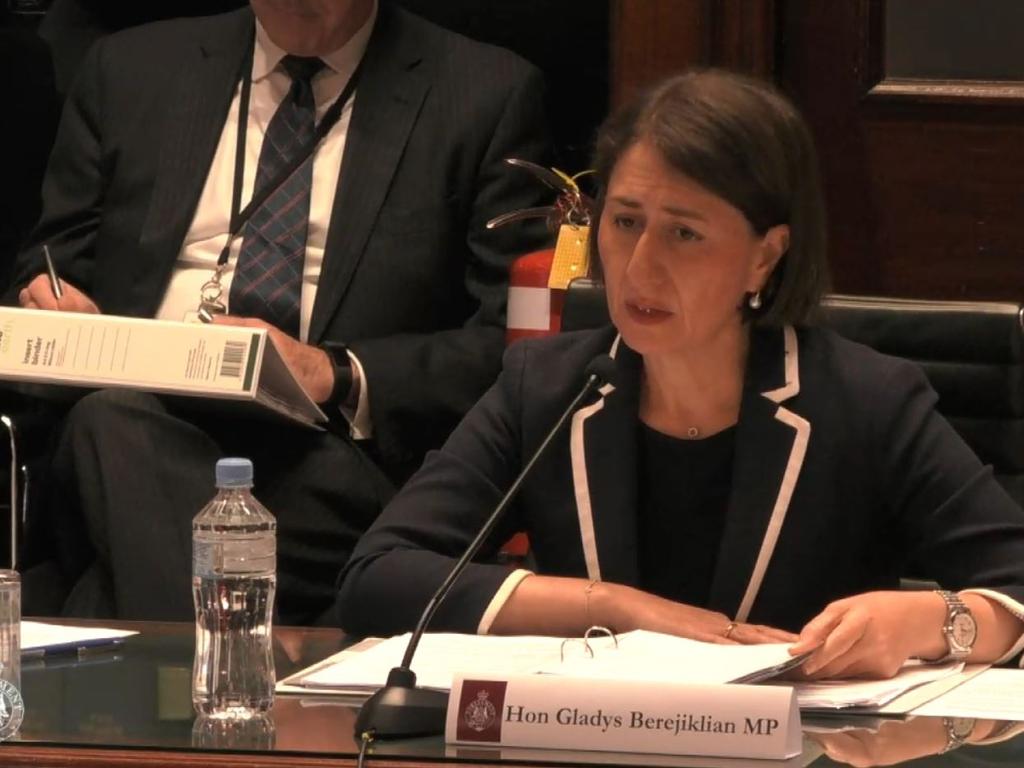Federal body ‘not like ICAC monster’, says Amanda Stoker
Assistant Attorney-General Amanda Stoker has pledged to stop a national integrity commission from turning into a ‘monster’ like NSW’s ICAC.

The Assistant Attorney-General, Amanda Stoker, has described the NSW corruption watchdog as a “monster” and says the proposed national integrity commission will be substantially different.
Senator Stoker, who is working on the proposed agency with Attorney-General Michaelia Cash, said it was important its design “learns the lessons from bodies like the NSW ICAC, whose broad-sweeping powers of inquisition and compulsion have seen lives destroyed over trivialities”.
“The premise for a broad anti-corruption body is the assumption that those in public office are prone to wrongdoing,” she said, “but no one asks who will watch these all-powerful armies of lawyers, who hide under the veil of ‘independence’.
“The Morrison government has engaged in a substantial consultation process and careful design to balance the importance of ensuring public trust in the integrity of government with the need to ensure we do not create a monster that – like ICAC – inflicts substantial injustice.”
With the Morrison government expected to unveil the final bill establishing a Commonwealth Integrity Commission this year, the resignation of NSW Premier Gladys Berejiklian has heightened concerns within the Coalition about how it would operate. On Monday, Deputy Prime Minister Barnaby Joyce said the NSW ICAC had made politicians “terrified” to perform their duties.
“This is not the great sort of righteous process – it’s a little bit like the Spanish Inquisition,” he told the Seven Network.
Mark Dreyfus, Labor’s legal affairs spokesman, said any commonwealth commission must learn from the deficiencies of existing state watchdogs, but public hearings were essential.
“It’s a shame the commonwealth is the last jurisdiction to have one but we can learn from the very best features of those eight (state and territory anti-corruption) bodies and take lessons from their deficiencies,” he said. “It is important to have the power to hold public hearings in the public interest … It builds confidence in the Australian community – they know they have someone to complain to about corruption, someone who will be independent.”

Mr Dreyfus said possible legislative protections for innocent witnesses hauled before any federal anti-corruption commission could include commissioners giving statements in hearings making it clear the witness faces no accusations, or commissioners making statements exonerating the witness if they are falsely accused of corruption in media reports.
The CIC model proposed before the last election would have given it the power to tap phones, demand sworn testimonies and make searches, but hearings into politicians and public servants would be private and cases would need to be referred to the commission by the government.
The final legislation is not yet complete, and Senator Cash has not presented it to cabinet.
The government’s proposed CIC – to be split into law enforcement and public sector divisions, with the latter covering politicians – would have public hearings only for law enforcement.
Labor’s proposed national anti-corruption commission, on the other hand, would give the commissioners wider powers to hold public hearings as they saw fit and conduct investigations off its own initiative.
A spokesman for Senator Cash said the government had consulted widely about any potential changes to the draft legislation and a final bill should be ready by the end of this year.
The Law Council, in a June submission to Senator Cash and Senator Stoker, raised concerns that the way matters could be referred under the government’s proposed model “creates an additional and unnecessary barrier to corruption issues even reaching the (commission)”.
“A broad pathway to refer matters to the CIC is necessary,” the council’s president, Jacoba Brasch QC, wrote. “This would maximise the amount of information the CIC is able to receive and consider from discretionary referrals.”







